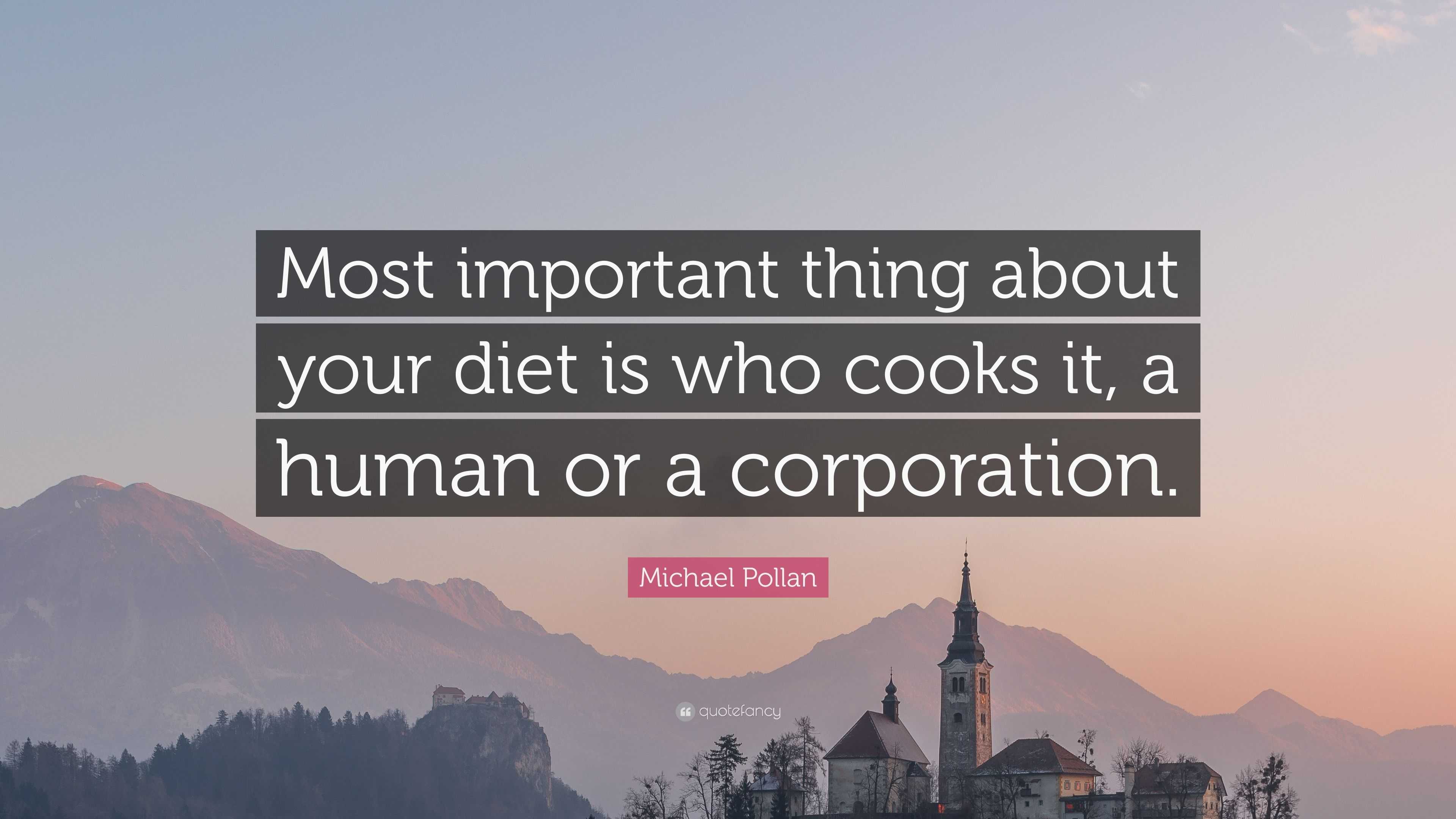

This, for Pollan, is “nature’s logic,” not capitalism’s, and in it he found much solace, lovingly describing the meal he ate at the farm as a quasi-religious ceremony. Its livestock eat no corn and are continuously grazed. Polyface Farm in Virginia is a “biological,” not an industrial system. With the third, “pastoral” meal we come closer to heaven. Meals composed of such ingredients might taste better, but they are not necessarily better for your health or for the earth. Pollan dubs this “industrial organic”-differing from true organic in that here, too, the ingredients are often mass-produced and delivered from a distance by industrial giants. Indeed, corn-along with the petroleum necessary for chemical fertilizers, pesticides, and transport-represents to Pollan nothing less than America’s answer to “the agricultural contradictions of capitalism.”īut the etiology of the second meal, using ingredients from Whole Foods, was no great improvement. The embodiment of the entire system is corn: a patented hybrid used as food, feed, or ingredient in virtually everything we eat.

The culprit is industrial agriculture, with its factory farming, feedlots, processing, transport, and marketing.

It was the “McFrankensteinian” horror of the first meal that, for Pollan, defined the essence of what he sees as our current national eating disorder. In the third meal, the ingredients came from a grass-based, “sustainable” farm in Virginia, while the fourth, at the apex of Pollan’s ascending order, was made from items mostly gathered or killed by the omnivorous Pollan himself.

Next was a chicken dinner prepared with ingredients purchased at an upscale Whole Foods market. First and worst was a take-out meal from McDonald’s, consumed in the car by Pollan, his wife, and their son as they cruised through Marin County north of San Francisco. In The Omnivore’s Dilemma, Pollan assumed the seemingly neutral pose of a naturalist to tell a tale of four meals. Notable among the authors of such books is Michael Pollan, whose The Omnivore’s Dilemma was a best-seller in 2006 and whose latest, In Defense of Food, is now far up on the charts. Like rock ’n’ roll, today’s food culture comes complete with superstar performers, fabled venues and festivals, vast media coverage, breathless critics, big money, and a tower of books.


 0 kommentar(er)
0 kommentar(er)
